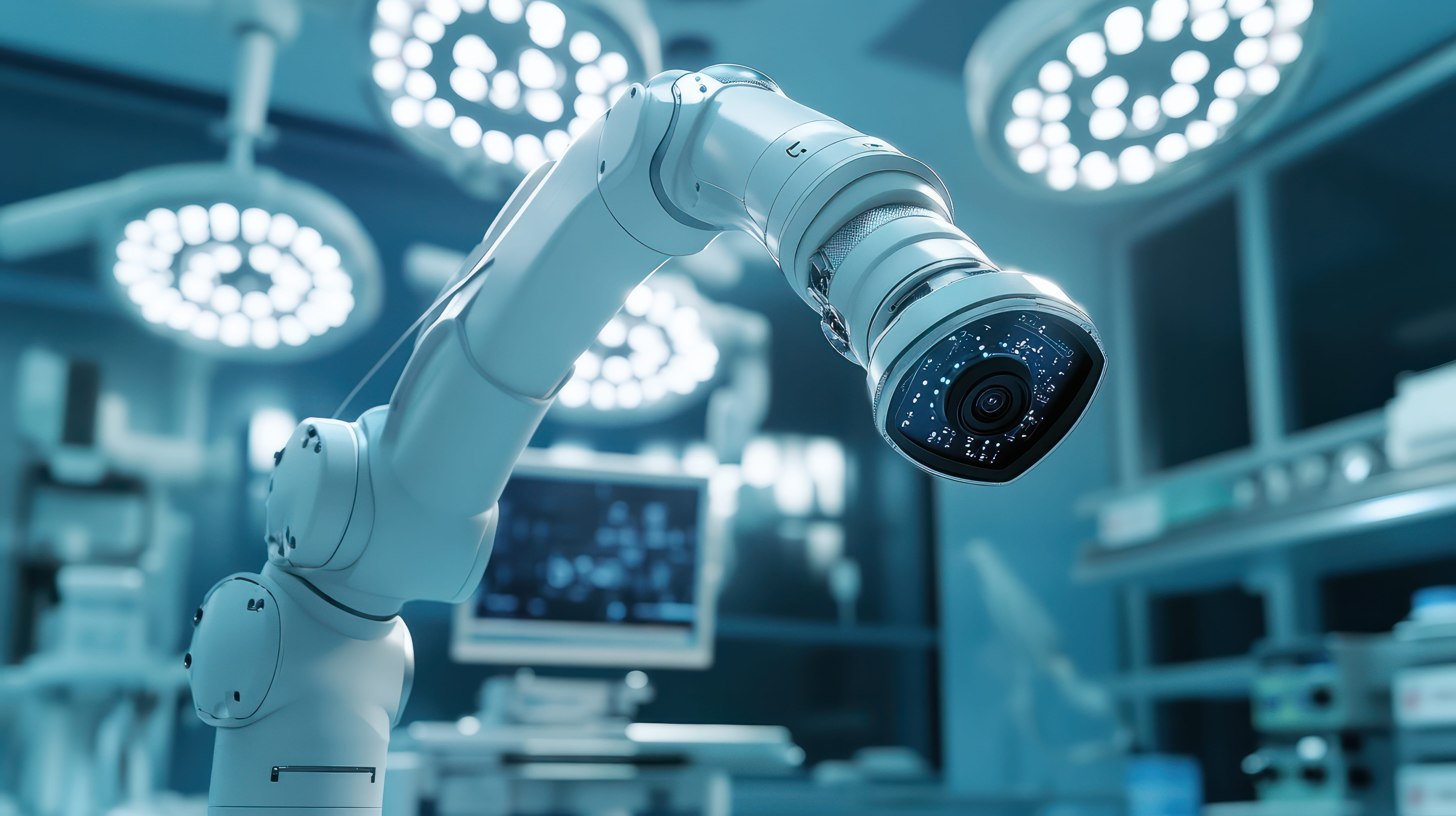The Medical Device Staffing Trends Impacting the Industry
10 Mar, 20258 minutesImplementing effective medical device staffing strategies can be difficult for businesses in...

Implementing effective medical device staffing strategies can be difficult for businesses in an industry defined by innovation and change. Understanding what skills, experience, and expertise are needed to ensure sustainable growth can be complex due to new technologies appearing on the market or a change in global regulations. As a specialist headhunter in medical devices, we have made it our mission to stay on top of the latest trends that could impact your talent acquisition.
So, this guide will explore the latest medical device staffing trends and challenges currently impacting the industry. What does this mean for talent acquisition? What skills gaps are being created, and how can our services help you stay ahead in such an unpredictable market?
Increasing Innovation is Creating Skills Gaps
With innovation surging from Food and Drug Administration (FDA) approvals and the increasing demand for new technologies to improve patient care, businesses are under increasing pressure to ensure their workforce has the expertise and skills to sustain this growth. For example, in the first eight months of 2024, the FDA approved 950 AI-enabled medical devices, compared with just six back in 2015.
The medical device industry’s need for AI skills is as acute today as it will be in future years. Software engineers and data scientists are just some of the talent businesses need to acquire, develop, and train. Similarly, the robotics market is expected to grow by 280% by 2030, leading to a demand for design, UX, and electrical engineers with medical device experience.
Increased Tech Skills Demands in Job Postings
Job postings seeking candidates with robotics skills reported having the largest job vacancy rates at 14%. Following in second place are roles requiring natural language processing expertise, which is vital to AI development. In addition, employers seeking talent experienced in compliance and ethics also reported a high job vacancy rate of nearly 9%.
These high vacancy rates create significant challenges for the medical device industry as medical care customer expert device makers deliver products at increasing speed.
Furthermore, Bain & Company reported that 78% of surgeons are interested in utilizing robotics in their practices, but currently, only 53% are doing so. The main obstacles include immature technology and limited clinical evidence, which can be addressed with quicker commercialization of services and products. Delivering the next generation of medical devices will require significant investment in people.
Widening Skills Gaps Concerning Life Science Leaders
MPO magazines 2024 Talent Trends survey of human capital and C-suite life science leaders globally found that 1 in 5 said that talent scarcity had negatively affected their business or is one of their biggest challenges. 79% said the skills gap is widening and will continue to create greater challenges in the next few years.
AdvaMed has also highlighted its concerns about talent scarcity. It states that the U.S. will need approximately 1 million more STEM employees in 2031 than in 2021, and the medical device industry is among the ones with the greatest need for this talent.
Growing Need for Regulatory Talent
As we have seen, continued innovation is crucial for business growth in the medical device industry. However, before these new devices come to market, they must overcome complex regulatory requirements. The sector is one of the most highly regulated industries globally due to medical devices' direct impact on human health and safety.
Therefore, regulatory affairs professionals play a vital role in ensuring that medical devices comply with strict rules and regulations put in place by governing bodies such as:
- FDA (U.S Food and Drug Administration) - In the US, medical devices are regulated by the FDA, which categorizes devices into three classes based on their level of risk. Each class has different requirements, ranging from premarket approval (PMA) to general controls.
- EU MDR (European Union Medical Device Regulation) - The EU MDR came into effect in May 2021 and was a replacement for the previous Medical Device Directive (MDD). This new regulation introduced stricter requirements in areas such as risk management, post-market surveillance, and clinical evidence.
- Other International Regulations - Outside of Europe and the U.S., medical device companies must manage the regulatory frameworks of other countries, including Japan’s PMDA (Pharmaceuticals and Medical Device Agency), China’s NMPA (National Medical Devices Agency), and Canada’s Health Canada. Each of these regulatory bodies has its own requirements and standards, making global compliance an ongoing complex challenge for businesses.
Any failure to comply with these regulations can lead to heavy financial losses, product recalls, and delays in product launches, damaging a company’s reputation. This highlights the importance of regulatory affairs experts to a business’s success, as they ensure that products meet all legal requirements and can be effectively brought to market.
With medical device regulations changing and becoming more stringent worldwide, the demand for professionals with expertise in this area will only grow. However, attracting and recruiting this talent can be challenging for many businesses.
What is the Challenge of Finding Regulatory Affairs Talent?
Some of the key challenges facing businesses when recruiting regulatory affairs experts include:
- Understanding of Current Regulatory Changes - Given that medical device regulations are constantly changing, businesses need professionals who understand current standards and are proactive in staying up-to-date with future changes. This level of expertise is rare, making competition for candidates fierce.
- They Possess a Niche Skillset - Professionals must have a specialized skill set that includes an extensive understanding of medical device regulations, knowledge of clinical trials and risk management, and experience with submission processes.
- Knowledge of Regulations Globally - For businesses operating in multiple regions, finding professionals with experience managing different markets' needs is even more challenging. They must have an extensive understanding of various regulatory frameworks and be able to provide direction for global product strategies.
Overcoming New Barriers in Medical Device Sales
The rise of corporate healthcare has meant that the medical device industry has undergone a significant transformation, including the growth of Integrated Delivery Networks (IDNs) and Group Purchasing organizations (GPOs). Historically, sales professionals built strong relationships with surgeons as they had a strong influence over purchasing decisions. Today, however, 80% of U.S physicians work for corporate entities, which has shifted decision-making power to procurement teams and Value Analysis Committees (VACs).
What are the Key Challenges for Medical Sales Professionals?
These changes have raised challenges that sales professionals need to adapt to. Here are the main areas:
- Physician Autonomy has been Reduced - The majority of doctors today have limited influence on product selection. This corporatization of medical care has challenged medical device businesses to shift strategies for expanding utilization.
- Increasing Focus on Value- based Procurement and Care - Hospitals are increasingly emphasizing clinical and economic value in their investments. Therefore, sales professionals have to present value models that resonate with finance and procurement departments to accompany their clinical proof sources while aligning with business priorities.
- Value Analysis Committees (VACs) - These were initially designed to vet new technologies and limit redundant products. However, VACs now present considerable barriers to entry for new medical devices.
- Need a Multi-stakeholder Approach - The reduced autonomy of surgeons means that success is no longer determined by their support. Sales and marketing professionals must work to create strategies that address the needs of multiple stakeholders, including finance departments and care providers.
What Strategies Do Sales Professionals Need to Succeed?
Here are insights into key strategies sales professionals need to succeed in this new environment:
- Gain a Deep Understanding of Value-Based Procurement - Sales professionals will need to engage with the procurement department and gain an understanding of their goals. With this knowledge, they can present products that align with their needs while demonstrating both economic and clinical advantages.
- Prepare for VAC approval - Ensure practitioners are equipped with the medical device's financial, clinical, and strategic benefits before submitting a VAC request.
- Align with Business Goals - Sales professionals must regularly collaborate with your business’s strategic sales partners to clearly understand the organization’s objectives, market priorities, and pricing constraints. This insight will help develop tailored solutions that meet company targets and align with potential customers' clinical and financial needs. This approach ensures a mutually beneficial partnership.
- Manage GPO Relationships - Identify which GPOs are most relevant for the medical device to maximize opportunities for product adoption, adjusting the sales strategy accordingly.
- Study Annual Reports - They need to review the publicly available reports of their top medical care facilities to understand their investment focus, financial priorities, and strategic goals. This knowledge will allow sales professionals to provide decision-makers and influencers with relevant insights that align product offerings with corporate objectives.
How is this Changing the Skill Set of Sales Professionals?
These changes have meant that sales professionals must adapt their skill sets. Here are the skills your sales team needs:
- Data-driven Selling Skills - Candidates must be strong at using analytics, financial models, and clinical studies to justify the product value.
- Strategic Relationship Management - Sales professionals must be excellent at managing relationships across multiple departments, including supply chains, executive leadership, and procurement.
- Managing Complex Sales Cycles - The buying process is now much more complicated with multiple layers of approval, such as VACs. Professionals have to understand how to prepare for these reviews and effectively position their products to meet different corporate criteria.
- Extensive Medical Care and Financial Acumen - Professions must increasingly show expertise in medical care economics, procurement processes, and value-based care. They need to be able to align product positioning with hospital financial objectives rather than just solely relying on clinical benefits.
- Resilience and Adaptability - This skill is nothing new for sales professionals, but due to the increasing complexity of sales cycles and the number of decision-makers, they must be persistent and creative problem-solvers who can adapt to organizational and regulatory changes while still managing sales performance.
How We are Facing these Trends and Challenges Head-on
Our deep understanding of the latest trends and challenges in the medical device industry has meant we are best positioned to ensure your company has the talent to address vital areas such as product development, sales strategy, and regulatory compliance. So, whether you need a director of regulatory affairs, a mechanical engineer, or a territory sales manager, here’s how we can support you:
- A Dedicated Medical Device Staffing Team - We have dedicated entire offices to the headhunting of medical device specialists. We have a vast candidate community to identify the professionals with the specific and niche skill sets your organization needs to succeed. If you need sales professionals with expertise in complex sales cycles or regulatory affairs experts with extensive knowledge of global regulatory bodies, we can support you.
- Tailored Talent Solutions - We build a close partnership with you to understand your vision and goals. With this insight, we develop hiring strategies to attract candidates who align with your mission and whatever growth stage you are at, from ambitious startups to multinationals scaling globally.
- Dedicated to Your Long-term Success - Hiring the right talent isn’t just about addressing your latest skills gaps; it is about having the people who will ensure sustainable growth. We prioritize long-term outcomes to ensure every candidate you hire contributes to your organization’s success.
- Global Reach - We offer permanent, contract, and executive medical device staffing services across the US, Europe, and Asia. This enables us to provide you access to global talent with a range of skills, from stakeholder management to creating CAD models.
Due to the changing nature of the industry, partnering with an experienced and expert medical device staffing provider provides the key to overcoming the challenges the sector brings up now and into the future. Together, we can drive innovation and guarantee your market success.
Ready to Discuss Your Medical Device Staffing Needs?
If you want to ensure you have the talent you need to meet the challenges and changes the industry brings, our dedicated medical device staffing teams are here to support you.



